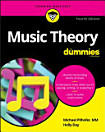Fugue in the Sixteenth Century
Paul Walker
Nov 2020 · Oxford University Press
Ebook
288
Pages
family_home
Eligible
info
reportRatings and reviews aren’t verified Learn More
About this ebook
Examining the roots of the classical fugue and the early history of non-canonic fugal writing, Paul Walker's Fugue in the Sixteenth Century explores the three principal fugal genres of the period: motet, ricercar, and canonza. The volume treats each genre in turn, tracing the fugue's development throughout the century and highlighting important moments and trends along the way. Taking a two-tiered approach, Walker, on one level, examines fugue from the perspective of contemporary musicians, and on another level, takes into account fugue's later history and the elements that came to play a significant role in its formation. Walker is the first scholar to successfully tie together the various strands of the "pre-Bach fugue" thanks to the growing availability of editions of the repertories involved. He also takes account of recent work elucidating the change in compositional approach around 1500 from a basis in cantus firmus and canon to one favoring non-canonical, fugal imitation. Featuring well-chosen musical examples to illustrate the compositional developments of the sixteenth century, Fugue in the Sixteenth Century is a definitive study for both specialist musicologists and organists and harpsichordists alike.
About the author
Paul Walker, Professor of the Practice Emeritus, University of Notre Dame Paul Walker is Professor of the Practice Emeritus, University of Notre Dame. He is the author of Theories of Fugue from the Age of Josquin to the Age of Bach.
Rate this ebook
Tell us what you think.
Reading information
Smartphones and tablets
Install the Google Play Books app for Android and iPad/iPhone. It syncs automatically with your account and allows you to read online or offline wherever you are.
Laptops and computers
You can listen to audiobooks purchased on Google Play using your computer's web browser.
eReaders and other devices
To read on e-ink devices like Kobo eReaders, you'll need to download a file and transfer it to your device. Follow the detailed Help Center instructions to transfer the files to supported eReaders.






